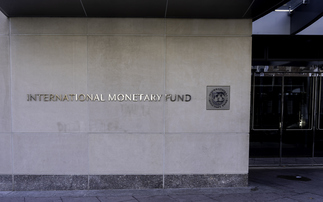Nigel Labram of renewable energy investment firm Low Carbon explores why the government and private sector must unite in order to facilitate a positive renewable energy investment climate
The much anticipated Paris Climate Change Summit (COP21) at the end of 2015 saw global government officials come together to agree on a deal to combat the negative effects of climate change. But the conference also provided a platform to bring other crucial issues to the global energy agenda, such as how developing countries can compete against first-world countries regarding climate finance, and also saw high-profile corporations such as Unilever pledging to become "carbon positive" within the next 15 years, by sourcing all of its energy from renewable generating resources by 2030.
What has become clear from the discussions at COP21 is that institutional investors can play an important part in the fight against climate change, and indeed how governments across the world can facilitate a positive investment climate for renewable energy. Whilst leading institutional investors do have the power to drive change, as well as alter perceptions, without stable support from the government they cannot invest large amounts of their assets into climate change solutions, such as solar farms and onshore wind farms.
Governments across the continent must start taking steps in the direction to create legislation that enables a positive investment climate for the private sector. Alongside this, institutional investors must do more to pressurize governments into making this move. Both of these sectors must collaborate on this issue - starting now and continuing into the future.
How can we move forward in the UK?
As London is one of the most competitive financial centres in the world, it is in a great position to become the global hub for climate finance. But questions must be asked as to whether our institutional finance community and the Department for Energy and Climate Change (DECC) could be doing more to spur each into action? For instance, in France and less formally in Scandinavia, regulations call on investors to both disclose and evaluate the carbon intensity of their investment portfolios. As a result, investors are incentivised to become more 'climate aware' than in previous years, and to make investments which are both capable of yielding strong and fixed financial returns, but can also contribute to saving the environment.
Another good example of similar action that has already been taken is the Montreal Pledge. This commitment from the UN's Principles for Responsible Investment body (PRI) aims to measure and publically disclose the carbon footprint of the total investments of its global members. Consequently, in 2014 large pension funds and institutional investors such as the Alliance Trust and the AXA Group were ultimately compelled to take action. We hope that in 2016 the investment community, particularly UK-based investors, harness the power that they have to influence change, especially change in policy and legislation.
Driving education and awareness is crucial
Further education and awareness is needed first in order for the government and the private sector investment community to collaborate more effectively on renewable energy investment policy. DECC, energy bodies, and lobbying groups within government can, and must, do more to educate investors as to the strong, inflation-linked and stable returns that are to be had from investing in climate change solutions such as wind, solar, and hydropower.
As a somewhat dated alternative, the days of investing in oil, for example, are numbered. This is down to the increasingly stark reality that you may drill for oil, but you won't always find it. Renewable energy such as solar PV on the other hand, generates electricity all year round and is a proven technology. Additionally, investing in renewable energy makes tangible financial sense and is not all about 'tree hugging', as is commonly misconstrued. Overall, levels of awareness have to be raised to help improve the broader energy investment mix in the UK.
Harnessing 'pester power'
As it stands, both the UK government and the institutional investor community in the UK is coming up against one of the most savvy younger generations ever. Millennials are standing up for their values publically on social media, and rallying others to their cause at a faster rate than ever before. Armed with a thorough understanding of what is meaningful to them, and that things need to change in order to positively affect our climate, it is this generation that may truly be able to exercise 'pester power'. Today's young investors are more likely to consider how their investment decisions affect future generations, and indeed how they support and underpin their values.
Last year, London School of Economics Professor, Lord Stern called on young people to hold their parents accountable on where exactly their money is going. With public moves like this happening ever more frequently, the government and indeed the investment community must realise that they too will be responsible for investing in, or showing support for, renewable energy over fossil fuels. Collaboration between consumers, retail investors, financial institutions and governments is absolutely imperative to not only raise awareness of the benefits of renewable energy investment, but also to help create a greener economy for future generations to benefit from.
Nigel Labram is an investment strategist at renewable energy investment company, Low Carbon
This article is part of BusinessGreen's Road to Paris hub, hosted in association with PwC.









